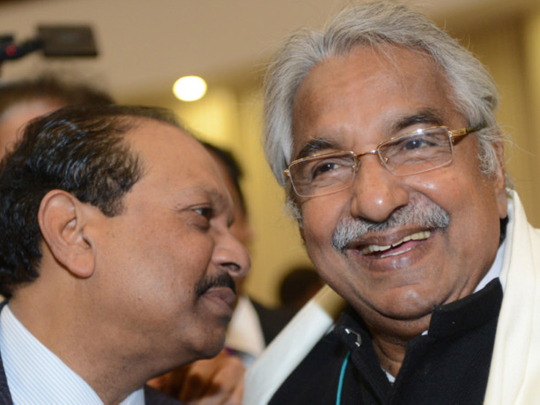
Until a couple of years ago, non-resident Indians (NRIs) did not enjoy the right to vote. But an official notification granting them the right to vote during elections in India has proved to be ineffectual, since it requires NRIs to register at the Indian embassy in their country of residence before travelling to India to vote. Special flights or absentee voting rights are essential for the move to succeed, NRIs say.
M.G. Pushpakaran, the President of the UAE chapter of the Overseas Indian Cultural Congress, is one of the few NRIs to have combined a trip to India with an election. “I had gone to vote. I believe that the right should be utilised,” he says.
However, Pushpakaran acknowledges that it’s not the usual practice. “In the Kerala assembly elections [in 2011] there were about 8,000 registrations from NRIs, even though there are about 500,000 in the UAE alone. The percentage of voting was very less. If we get a facility to vote here there is some advantage. The majority of people are blue-collar workers and they cannot pay to travel to India just to vote,” he says.
This is the case in most states. While no NRI had registered in Karnataka to vote until mid-2013, Madhya Pradesh had six registrations. And only 47 of 14 million Punjabi NRIs had registered to vote in last year’s state election.
While elections make for essential dinner table conversation, only a few NRIs out of the estimated population of 21.9 million believe that it is realistic to go to India to vote. Paras Shahdadpuri (left), Chairman, Nikai Group of Companies, and President of the Indian Business and Professional Council, says, “Millions of Indians live outside the country but not more than 1 per cent can go and participate.”
Heeding popular opinion that only the right to vote is not enough, in the 2011 assembly elections, the Kerala Muslim Cultural Centre, a United Democratic Front affiliate, had organised a charter flight from Ras Al Khaimah, ferrying more than 150 Gulf-based NRIs to travel and vote.
While NRI forums and online petitions across the world promote absentee voting, Shahdadpuri goes a step further. He says, “There should be some representation of the diaspora. This can be done by a constitutional amendment where two to four seats can be reserved for NRIs or people of Indian origin.”
For those who would like to register to vote, the process is simple. It involves filling form 6-A, available on the Election Commission of India’s website (Eci.nic.in). The filled-up form, along with self-attested documents (a recent photograph, copy of the passport and visa details) need to be mailed or delivered in person to Electoral Registration Officers of the constituency under which the address mentioned in the passport falls.


